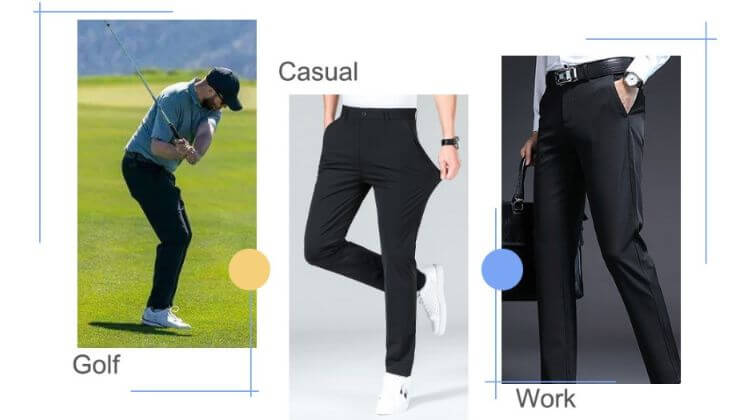As an Amazon Associate, I earn from qualifying purchases.

Language is an enthralling component of human interaction, constantly evolving and adapting to societal changes. Expressions, idioms, and phrases make language colorful and vivid. One such intriguing phrase in English is “a pair of pants.” Have you ever wondered why we use “pair” when referring to just one item of clothing? This article will delve into the history and evolution of this peculiar linguistic phenomenon and explore its cultural implications.
Why are Pants Called a Pair?
The Origin of “A Pair of Pants”
Historical Context
The phrase “a pair of pants” dates back to the early Middle Ages. In medieval Europe, clothing was typically constructed as two separate leg coverings, secured independently around each leg. These leg coverings were fastened together at the waist, creating what we now call pants. Initially, they were called “breeches” or “trousers.”
Evolution of Language
As language evolved, so did the way people expressed themselves. Over time, “a pair of pants” became commonplace. This change can be attributed to linguistic oddities and how collective nouns were employed in English.
Linguistic Oddities: Collective Nouns
Pair of Pants Singular or Plural?
In English, some nouns function as collective nouns, representing a group of items or pairs. Interestingly, when talking about certain items made up of two parts, like scissors or glasses, people often use the term “pair” to indicate the unity of the object. This linguistic oddity can be observed in phrases such as “a pair of scissors” or “a pair of glasses.”
Idiomatic Expressions in English
Figurative Language
Idiomatic expressions are a fascinating aspect of language. They add flavor to conversations and often have symbolic meanings. The phrase “a pair of pants” is an example of such an idiom. It has become ingrained in English as a figure of speech rather than a literal description.
Cultural Influences
Idiomatic expressions are not only language-specific but also heavily influenced by culture. Over time, “a pair of pants” became deeply ingrained in English-speaking cultures, further solidifying its usage.
Similar Expressions in Other Languages
Cross-Cultural Perspectives
The uniqueness of language is not limited to English alone. Many other languages also have idiomatic expressions that might seem peculiar to non-native speakers. Exploring similar phrases in other languages sheds light on the universality of idioms and their cultural significance.
Language Changes and Adaptations
Language Fluidity
As societies progress, so does language. New phrases and expressions emerge while some older ones fall out of use. Understanding this dynamic nature of language is crucial in comprehending linguistic oddities like “a pair of pants.”
Societal Impact
The way we use language reflects societal norms and values. As societies evolve, so does the language they speak. Examining idiomatic expressions like “a pair of pants” provides insights into the historical and cultural contexts that shaped these linguistic quirks.
FAQs
How does language evolve?
Language evolves through societal changes, adopting new phrases and expressions while discarding older ones.
Do other languages have similar idiomatic expressions?
Yes, idiomatic expressions are present in various languages, each reflecting the cultural influences of the respective societies.
Why is language constantly changing?
Language is a living entity, adapting to society’s evolving needs and values, making it a dynamic and ever-changing system.
Final Word
In conclusion, the phrase “a pair of pants” may seem peculiar initially, but understanding its historical context, linguistic oddities, and cultural influences sheds light on the richness of language. As language evolves, idiomatic expressions like these will continue to captivate and intrigue us, reminding us of the fascinating world of human communication.





